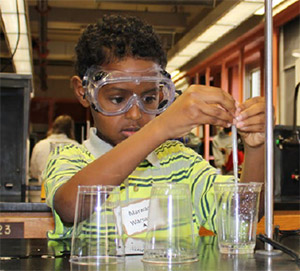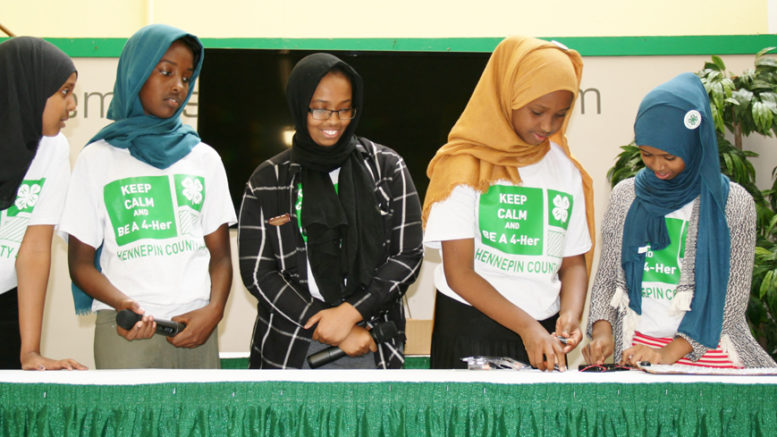A program dedicated to help Somali youth participate in Science and technology education is getting an extension. Kajoog, a Somali nonprofit alongside University of Minnesota are giving kids from Cedar Riverside neighborhood an introduction into the STEM field. STEM is a curriculum based on Science, technology, engineering and mathematics. In today’s very competitive job market, STEM majors are becoming more desirable by innovation driven companies but less desirable by the general population. That is why the unemployment rate among graduates with STEM degree is below 2%. The demand is significantly lower than the supply, hence the reason for the low unemployment rate.
The 4-H STEM program was started in March of 2016 by Kajoog, a nonprofit who secured a $50,000 grant through the Minneapolis city council. The program has been so successful that it has opened locations in Saint Paul and Eden Prairie as well. Over 50 kids are registered for the year 2017 and has a growing waitlist.
 Farah, executive director of Kajoog said, “every parent wants their kid to be the next engineer and the next doctor, We’re able to expose these potential careers to these kids by them being involved in the 4-H world.”
Farah, executive director of Kajoog said, “every parent wants their kid to be the next engineer and the next doctor, We’re able to expose these potential careers to these kids by them being involved in the 4-H world.”
4 H is normally a program that funds agriculture but in this case a science and technology mentorship program that is offered to Somali youth. The kids have been to field trips and local universities to experience what those careers look like.
Assistant dean of University of Minnesota Extension, Jennifer Skuza, said, “It supports young people in their acculturation, It also helps them think about what they may do in the future. It’s a way to engage the students in an informal learning”. Skuza added, “Not only are the kids learning science, but they have a supportive place to explore who they are.”
According to 2016 survey by Minnesota Student Association, 1 in 3 Somali students reported some kind of harassment in the last 12 months. Programs like this help kids find themselves around peers that they can relate to explained Skuza. In her blog, assistant dean Skuza adds that “Somali American youth are labeled as different and viewed as people who choose to resist mainstream norms – because the girls wear hijabs even when they play sports, because they don’t eat pork, or because they don’t date during adolescence. Somali American youth often find themselves defending or explaining who they are, a process that can isolate them from their peers and confuse their sense of self”.
Kajoog, a non profit organization that helps Somali youth stay away from violence, drugs, radicalization has been recognized by local leaders as well as federal prosecutor Andrew Luger for their work in the community. They secured their second round of grants for the 4H program with the help of council member Abdi Warsame who represents the district with the biggest Somali population in the twin cities. Warsame told the Star Tribune, “It broadens the horizons of our youth. Building community infrastructure is one of the most important ways of alleviating poverty and reducing the risks that our youth are facing”.

